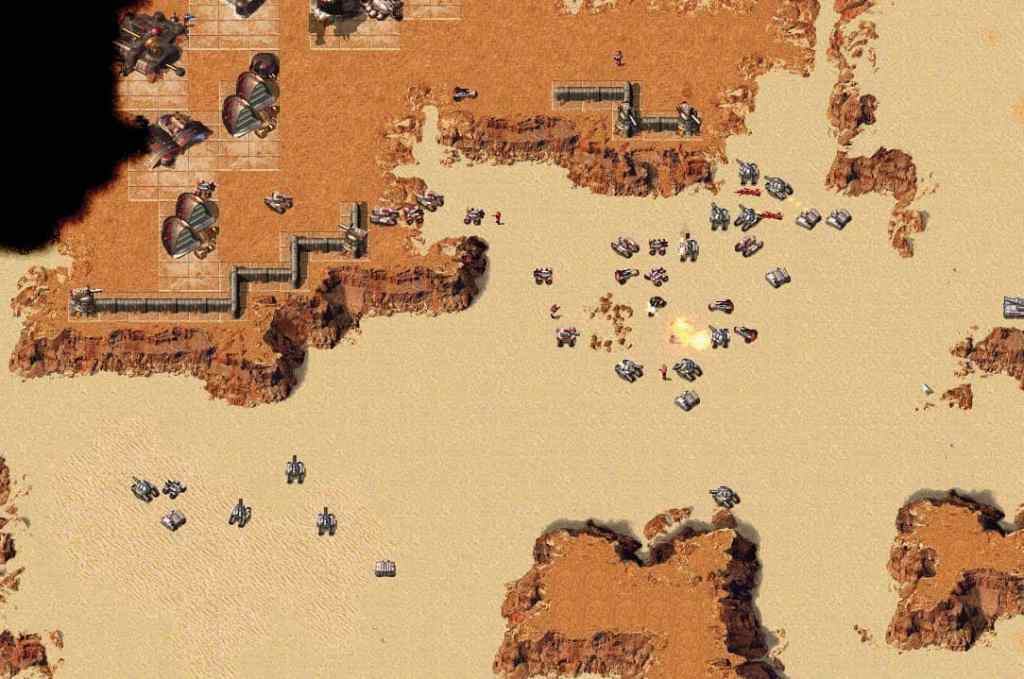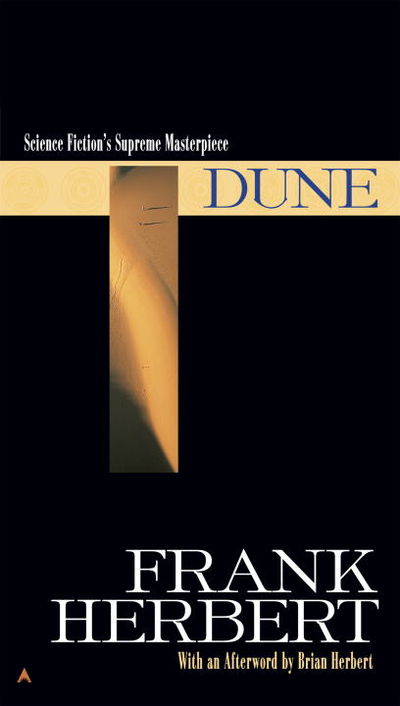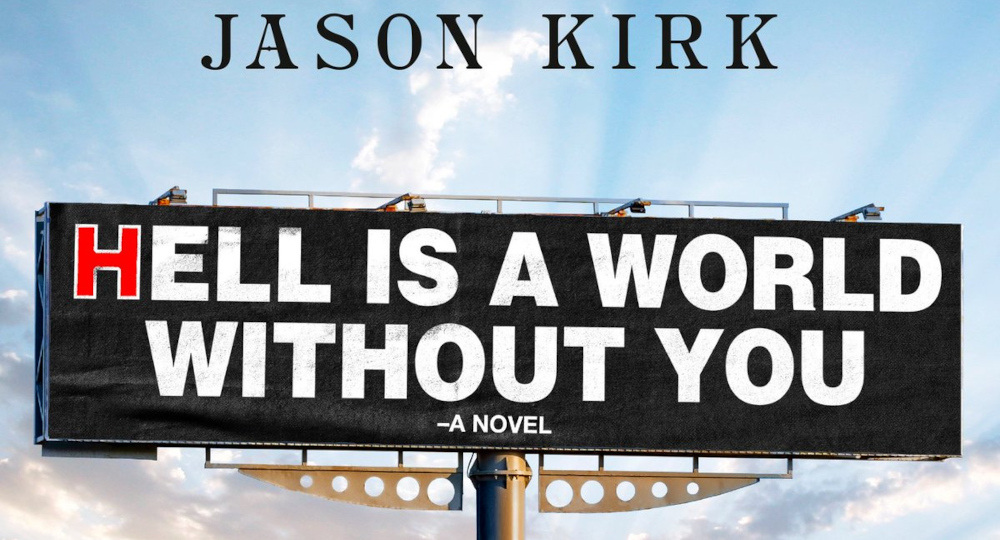When I was in elementary or middle school, I went to a birthday for a friend of mine from church. He showed me Dune 2000 and Command & Conquer: Red Alert on his PC. It was one of those formative, mind expanding experiences – the introduction to a new genre of videogame, real-time strategy. I would later spend a lot of time playing Red Alert and the original Dune-inspired Command & Conquer. Dune 2000 was my first foray into Frank Herbert’s world; I can still remember sitting in that desk chair, learning about House Atreides, House Harkonnen, and Clan Ordo, learning to get my harvesters out of the spice fields to dodge the sandworm. In middle school, one of my uncles bought me the original Dune trilogy after talking it up to me while driving my brother and I to meet my mom at my aunt’s wedding. I struggled through the first book and then left it dormant until graduate school. I finished it between 2018 and 2019, and Dune Messiah and Children of Dune in 2019. God Emperor of Dune has been sitting on my bookshelf since 2021 or 2022. I saw Denis Villeneuve’s Blade Runner 2049 in 2021, four years after it came out, in anticipation of his directing Dune. I remember being pleased and brimming with anticipation. I remember thinking about the intentional vacancies in the worlds he creates – the vastness and alienation, and the cleverness of that particular legacy sequel. I saw the first part of his Dune series and was absolutely riveted. It came out my birthday weekend and I watched it at home because it was straight to HBO and I was feeling a little wiped out. I wish I saw it on a big screen. I hope some day I still can.

One abiding criticism of Denis Villeneuve’s Dune was that it felt like half a movie. Villeneuve had, after all, announced his intention to split the first book into two films. I saw David Lynch’s Dune last year and it put that complaint into a new light for me. That movie’s third act is completely a rush. It *should* have been two movies, is what I thought once I saw it. Now that I’ve seen Dune: Part Two, I almost feel like it could have been three. I suppose that’s why, after all, there’s a SyFy miniseries from the turn of the millennium.
Every generation, people are reintroduced to Dune as a concept. The 1965 novel won the Hugo and Nebula prizes for science fiction novel. In 1984, there was the Lynch movie. In 2000 and 2003, there were the SyFy miniseries. In 2021, 2024, and some near point in the future, we have Villeneuve’s trilogy. People jump to call the story orientalist and a white savior story without considering that there might be any intention or deconstruction there – which isn’t to say it can’t be critiqued for exoticizing the Arab world, but it certainly means people sound silly when the story is very explicitly about the danger of a charismatic leader planning to do evil. There’s something to be critiqued there about how the story overall, in Frank Herbert’s original writing, falls into a flattening of all ideology and an evading of the utility of violence in change or a great many other political limitations of a blanket anti-government ideology. But that’s not typically what I’ve seen. And, no doubt, it gets tedious to hear people repeatedly say “just you wait” about an obvious heel turn, but it should be easy to understand that people start repeating that mantra when the laziest armchair commentators can’t be bothered to engage with a text that explicitly addresses their reflexive critiques. Perhaps that’s neither here nor there, but it feels present.
I mention all this extraneous context because Dune fascinates me, because Dune is easy to love as a huge influence on space opera science fantasy at large, and because when you see a movie at its official opening weekend instead of an advance screening and you’re addicted to social media, your perspective is wrapped up into the context of assessing your experience in comparison to that of others. Or, that’s how it is for me, anyway. I’m continuing to cultivate my taste and, for better or for worse, Film Twitter is a place I find that fun to do.[1]
I really enjoyed Dune Part Two. I found that as a result of it being an adaptation – and one in a decently long line of audiovisual adaptations of the novel – its assessment as a film is inextricably tied to what it changes and what it keeps the same. I find this especially instructive in the long shadow of the conversations last year about historical accuracy in films. Adapting a biography or a true crime/history book are different tasks than adapting a novel, but people still levy critiques along the lines of what they think is noteworthy in history and what is left out in this new form.
Are we harsher with interpretations of existing fiction than interpretations of truth because fiction often has more explicit lines where truth has to be discovered and excavated? Do we give more benefit of the doubt about the corners which need cutting or the artistic license when what you’re working from isn’t art but reality, in all its inherent counterfactual fickleness? If so, I would think it’s because fiction is more knowable, does have specific intents behind it – but, then, it’s also prone to interpretation to begin with, hence the questions.
One problem I have is that there’s a real limit to any generalized conclusion, so how do you even answer those things? Not all people in any given group (even an especially if that group is “film critics’ or “Film Twitter”) agree on the merits of any given film. So, the question of “how do we weigh this?” will always be constrained because “we” isn’t all-encompassing. Yet critical arguments or staking out how we ought to, or how we might.
I do think it’s silly as hell to act as if Villeneuve’s Dune is inherently lesser than Lynch’s as if it is some objective truth and not a matter of taste, because it isn’t as grotesque and stapled-together or because the Guild Navigator isn’t in it. The Guild Navigator isn’t in the first book either. I think it’s critically weak and in bad faith to act as if the main thing a new adaptation of a source text should be compared to is the old adaptations. It makes some sense to me to measure them against one another in quality or value or, more problematically, as which is the more pure adaptation of the source. Either way, it makes way less sense to me to act as if Villeneuve’s Dune is a reimaging of Lynch’s (no one ever mentions John Harrisons two miniseries) rather than a new adaptation of Frank Herbert’s work. And Jodorowsky’s is a figment – all potential, all ideas and what ifs, it only exists in the shared imaginary of people that watched a documentary or read a book about his plans and thought “wow, that would have been cool.”
The things people were most vocal about missing from this adaptation of Dune is his younger sister Alia as a galactically precocious child and the Sietch Tabr spice orgy. We only witness Alia as a fetus with whom Lady Jessica converses and a vision of Anya-Taylor Joy; I was fine with this. It felt like a creative choice that fit within the structure of what else was being produced and, again, I didn’t feel a need to contrast it with the other prominent movie version. I also don’t recall the spice orgy in Lynch’s Dune, but I don’t think it would have *hurt* to be in this film except that there’s only so much runtime and that I believe in the vision of the artist as presented.
What I would have liked to see is more of Paul and Jessica’s adaptation to the Sietch life from the cultural-domestic perspective; i.e., Paul becoming responsible for Jamis’s late wife and so forth. But I liked what was there – seeing Jessica seize power, seeing Paul wrestle with it. I also liked a couple things people pointed out online that I only noticed after rewatching Dune or only noticed through these discussions, respectively: (1) Paul’s visions in the first film don’t quite play out exactly as he thought when you get to the second film, in line with what he told the Reverend Mother after the Gom Jabbar test; (2) Paul, relatedly, has visions of a version of his life that never came to pass, a version where it is Jamis rather than Stilgar and Chani guiding him. It isn’t apparent from the film, and it needn’t be, whether this means Stilgar or Chani or both died in this other version of his path, but it’s interesting that he’s drawing from a world he can’t access in his decision making.
Another change I thought was interesting looking back was the place of Liet-Kynes, the Imperial Ecologist ingratiated into Fremen culture. I had forgotten that, in the book, there’s initially some confusion for Paul and Jessica about the identity of Liet and Kynes, i.e., they didn’t know that was one and the same person. The obvious change in the first film is that they’ve made Liet-Kynes a woman. But, in the books, Chani is also Liet-Kynes’ daughter. This hasn’t come up in the films and I’m not sure it will; it might not communicate well with her distaste for/distrust of outsiders, which is being underscored with the way Paul seizes power (“THIS PROPHECY IS HOW THEY ENSLAVE US!”) and the way the film ends with her feeling hurt and distrust in her eyes as she leaves.
Listening to the Socialist Shelf podcast discussing the book and the films[2], I was reminded that the book ends with Jessica telling Chani to take heart, because history will remember she and Chani as wives, and people like the Princess Irulan as “mere” concubines. I wonder how these relationships will play out in the next film (I really hope Villeneuve ends up adapting the third book as well, but I’m trying not to hold my breath). In any case, removal of that line, of Jessica’s consolation of Chani amid the political machinations happening around the imperial succession, obviously connects to Chani leaving upset. The balance of power in the story shifts some away from Paul, even as he has power over the known universe: the dynamics of the story have him and his beloved at odds, her feeling like a used tool, a manipulated person, but also therefore as a standalone, possible rogue actor instead of actually being a tool because of her willingness to just go along with things.
This has gotten away from being much of an essay and is more of me rambling. I wanted to touch briefly on the new Dune RTS, which I only briefly tried since it is on Game Pass. There’s a lot of potential for RTS games in adapting this story, but this one makes some crucial mistakes. In order to give the Fremen more agency, it makes them a faction rather than just anonymous allies. In so doing, it gives them the same victory conditions as the Atreides or Harkonnens, which doesn’t make any sense within the story or the world. The Fremen are not interested in serving the Paddishah Emperor of House Corrino and helping his Navigators get spice. They care not for the integrity of the Imperium or the balance of power between the CHOAM and the Great Houses. That’s not their ministry, not their monkeys or their circus. So the game ends up feeling flat. Dia Lacina wrote about these issues at length in the game’s preview stage, but it doesn’t feel like that changed.
My point is that there are a lot of ways to adapt a story or a world. There will always be genre and structural limitations and the limitations of the perspective of the artist or artists involved in the creation of the piece. If you find a version of a story or a world bland or boring, that’s a legitimate criticism, and if you compare it with another version you find more valuable because of its wackiness or because it felt more artistically daring, that’s all good to. I like Raimi’s Spider-Mans more than the MCU films; I like the original Star Wars trilogy more than the prequels and the prequel trilogy more than the sequel trilogy. But, sometimes time, new technology, and a director not being hampered by the studio can make something better – I like De Palma’s Scarface much more than Howard Hawks’s, and I like David Lynch’s Dune, but my preferred Dune film adaptation is written and directed by Denis Villeneuve.
[1] Everything prior to this point, except most of the paragraph before this one, was written in March. After this, it’s a mixed bag but mostly written in May. I ended up rereading my review after writing this and there’s a little bit of redundancy but I don’t care.
[2] That was the Apple link. Here’s the Spotify one. Listen to their stuff, it’s cool. They’ve had Vincent Bevins and Karlo Yeager Rodríguez on, among other guests.

